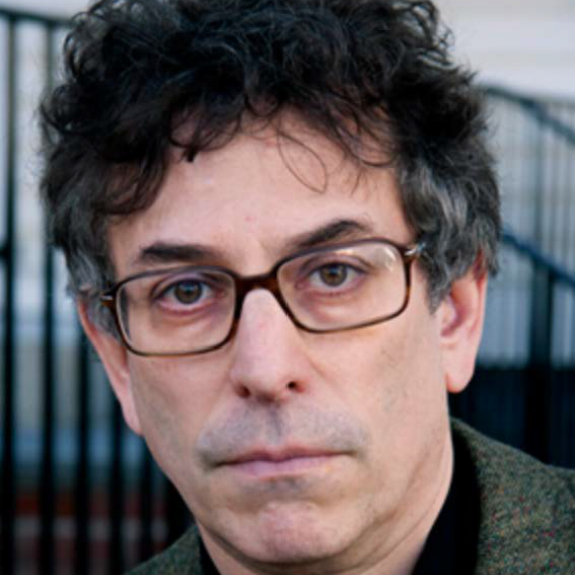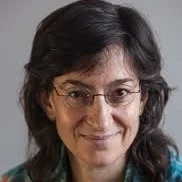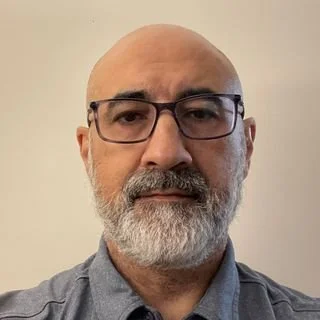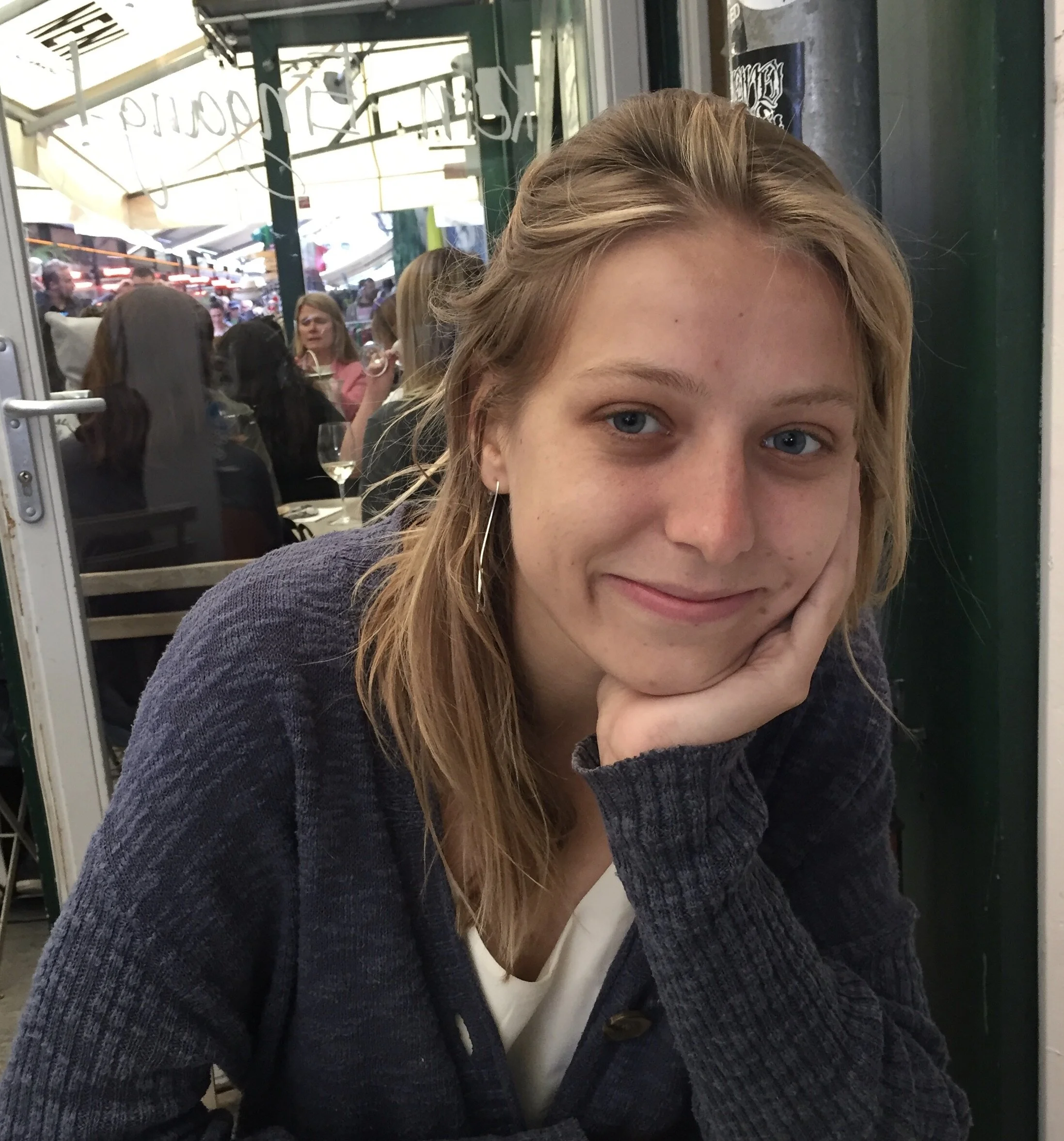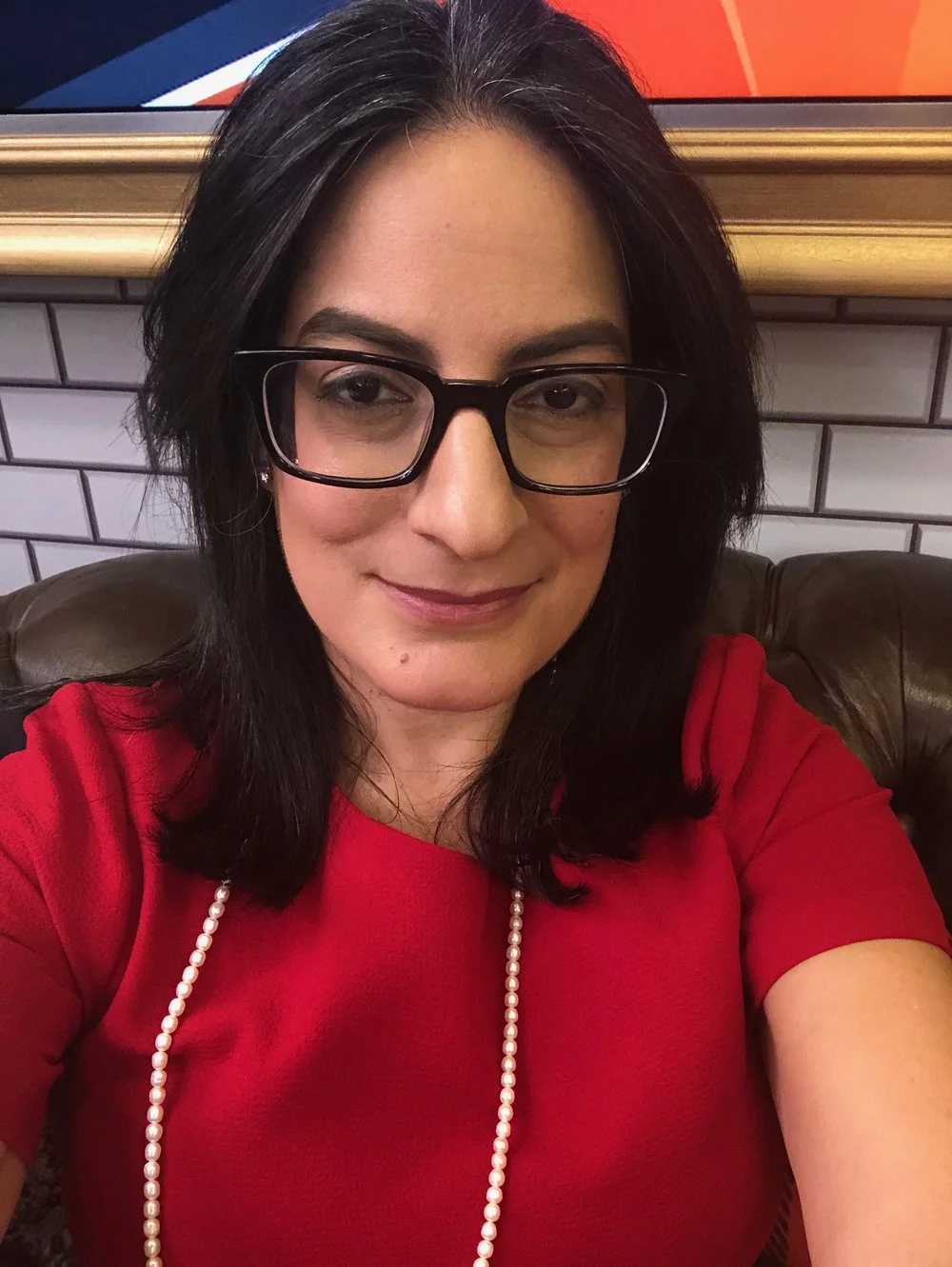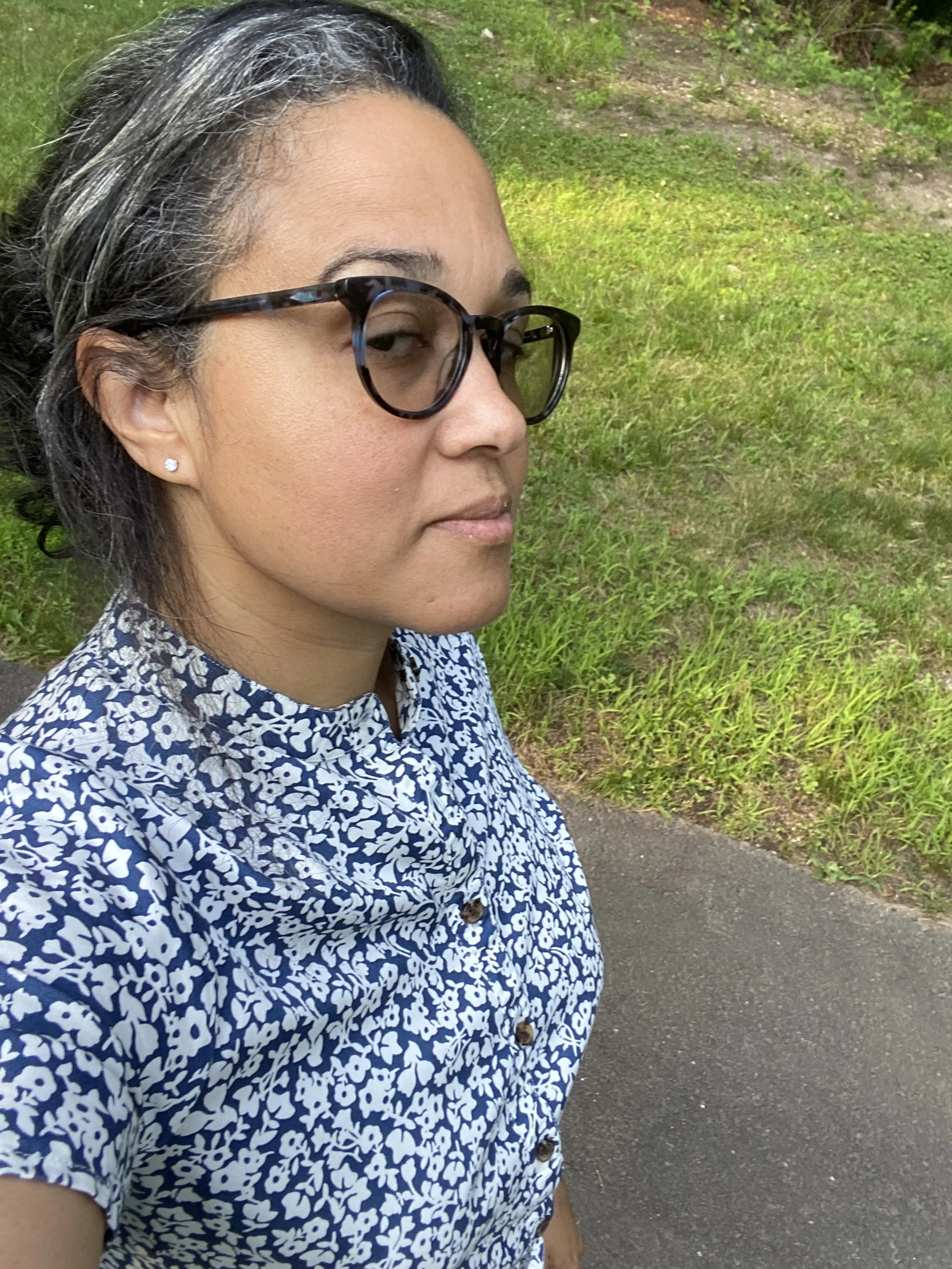Sd-Z
FAculty
Professor, Department of Journalism, Columbia University
Bruce Shapiro is Executive Director of the Dart Center for Journalism and Trauma, a project of Columbia University Graduate School of Journalism encouraging innovative reporting on violence, conflict and tragedy worldwide. He is an award-winning reporter on human rights, criminal justice and politics. He is a contributing editor at The Nation and U.S. correspondent for Late Night Live on the Australian Broadcasting Corporation’s Radio National. He is also Senior Advisor for Academic Affairs at Columbia Journalism School, where he teaches ethics. His books include Shaking the Foundations: 200 Years of Investigative Journalism in America and Legal Lynching: The Death Penalty and America's Future.
Assistant Professor, Department of Architecture, Columbia University
Anooradha Iyer Siddiqi is an Assistant Professor of Architecture at Barnard College, Columbia University, and co-editor of “Feminist Architectural Histories of Migration” (2020) and Spatial Violence (2016). Her book manuscript Architecture of Migration: The Dadaab Refugee Camps and Humanitarian Settlement analyzes the history, visual rhetoric, and spatial politics of the Dadaab refugee camps in Northeastern Kenya.
Professor, Department of Neuroscience and Psychology , Barnard College
Rae Silver is the Helene L. and Mark N. Kaplan Professor of Natural & Physical Sciences and the head of the Silver Neurobiology Laboratory. Since 1976, Professor Silver has been a member of Barnard’s faculty and has taught courses in Quantitative Reasoning, Neuroscience and Psychology. The National Science Foundation, the National Institutes of Mental Health, and National Institute of Neurological Disorders and Stroke, Air Force Office of Scientific Research, and the Office of Naval Research, are among the organizations that have supported her research.
Associate Professor, Department of Anthropology, Columbia University
Audra Simpson is Associate Professor of Anthropology at Columbia University. She is the author of Mohawk Interruptus: Political Life Across the Borders of Settler States (Duke University Press, 2014), winner of the Native American and Indigenous Studies Association’s Best First Book in Native American and Indigenous Studies Prize, the Laura Romero Prize from the American Studies Association as well as the Sharon Stephens Prize from the American Ethnological Society (2015). She is co-editor of Theorizing Native Studies (Duke University Press, 2014). She has articles in Cultural Anthropology, American Quarterly, Junctures, Law and Contemporary Problems and Wicazo Sa Review. In 2010 she won Columbia University’s School for General Studies “Excellence in Teaching Award.” She is a Kahnawake Mohawk.
Associate Professor, Department of Sociomedical Sciences, Columbia University.
Kavita Sivaramakrishnan is an Associate Professor of Sociomedical Sciences at Columbia University. She is the author of As the World Ages: Rethinking a Demographic Crisis (2018), on the global politics of aging. She is a public health historian of South Asia with a focus on the politics of health, medicine, and science in the global South. Her research has focused on the politics of ‘indigenous’ Ayurvedic medicine and its reconfiguring in a late colonial context in North India and social histories of epidemics and the role played by experts and scientific evidence.
Associate Professor, Department of English and Comparative Literature, Columbia University
Joseph Slaughter teaches and publishes in the fields of postcolonial literature and theory, African, Caribbean, and Latin American literatures, postcolonialism, narrative theory, human rights, and 20th-century ethnic and third world literatures. His many publications include articles in Human Rights Quarterly, Research in African Literatures, The Journal of Human Rights, Politics and Culture, and Tulsa Studies in Women's Literature. His essay, “Enabling Fictions and Novel Subjects: The Bildungsroman and International Human Rights Law," appeared in a special issue on human rights of PMLA (October 2006) and was honored as one of the two best articles published in the journal in 2006-7.
Associate Professor, Department of Journalism, Columbia Journalism School
Alisa Solomon directs the Arts & Culture concentration in the M.A. program at the Journalism School. She came to Columbia in 2005 after nearly 20 years as a professor of English/Journalism at Baruch College-CUNY and as a professor in the Ph.D. programs in Theater and in English at the CUNY Graduate Center. In addition to contributing occasionally to The Nation, The Forward, The New York Times, and other publications, she was on staff at The Village Voice for 21 years, where she was a regular theater critic and cultural and political reporter, winning awards for stories on reproductive rights, electoral politics, women's sports, and immigration policy. Solomon's book, Re-Dressing the Canon: Essays on Theater and Gender, won the George Jean Nathan Award for Dramatic Criticism.
Assistant Professor, Department of Women’s, Gender and Sexuality Studies, Barnard College
Marisa Solomon is an Assistant Professor of Women’s, Gender and Sexuality Studies at Barnard College, where she is affiliated with The Earth Institute. Her work draws upon Black feminist Marxism, queer of color critique, feminist intersectional science studies, and standpoint epistemologies to explore how scales of racial and ecological injury are linked from the body, to the neighborhood, to the region, to the Black Atlantic.
Associate Professor, Department of Sociomedical Sciences, Mailman School of Public Health, Columbia University
Marni Sommer, DrPH, MSN, RN, has worked in global health and development on issues ranging from improving access to essential medicines to humanitarian relief in conflict settings. Dr. Sommer's particular areas of expertise include conducting participatory research with adolescents, understanding and promoting healthy transitions to adulthood, the intersection of public health and education, gender and sexual health, and the implementation and evaluation of adolescent-focused interventions.
Associate Professor, Department of English, Columbia University and Barnard College
Maura Spiegel has a joint appointment at Columbia University and Barnard College, where she teaches literature, film and American Studies, and she is Associate director of the Program for Narrative Medicine at Columbia College of Physicians and Surgeons, she teaches film to second-year medical students, as well as graduate students in the Master of Science Program in Narrative Medicine at Columbia. She recently ran a writing workshop for the staff of the NYU/Bellevue Program for Survivor’s of Torture. She is the co-author of The Grim Reader: Writings on Death, Dying and Living on (Anchor/Doubleday).
Professor, Department of Comparative Literature, Columbia University
Gayatri Chakravorty Spivak is University Professor and Founder of the Institute for Comparative Literature and Society at Columbia University. She was educated at the University of Calcutta, and came to Cornell University in 1961 to finish doctoral work.
Adjunct Professor, Department of Ethnicity and Race and Anthropology, Columbia University
Elsa Stamatopoulou is the Director of the Indigenous Peoples' Rights Program at the Institute for the Study of Human Rights at Columbia University. Born in Athens, Greece, Stamatopoulou has devoted 21 years of her UN work to human rights, in addition to several years exclusively focusing on Indigenous Peoples rights. Most recently, she directed the work program of the Secretariat of the UN Permanent Forum on Indigenous Issues (UNPFII) as its first Chief from its inception in 2003 to 2010. She supervised the production of the first ever State of the World’s Indigenous Peoples publication of the United Nations (2010).
Associate Professor, Department of History, Columbia University
Rhiannon Stephens is an Associate Professor of History at Columbia University. She is the author of A History of African Motherhood: The Case of Uganda, 700-1900 (2013), which traces the social institution and ideology of motherhood across over a millennium of Ugandan political, economic and social change, and co-editor of Doing Conceptual History in Africa (2018), which critically examines what it means to write conceptual history on the continent.
Professor, Department of Journalism, Columbia University
Sarah Stillman is a staff writer at The New Yorker magazine and has written on topics ranging from asset forfeiture abuse to the return of debtors prisons, and from Mexico's drug cartels to Bangladesh's garment factories. Her coverage of human trafficking on U.S. military bases in Iraq and Afghanistan won the National Magazine Award, the Michael Kelly Award for the “fearless pursuit and expression of truth,” and the Hillman Prize for Magazine Journalism, among other prizes. Her current work focuses on the toll of Trump-era immigration enforcement: the human face of ICE raids, family detention, and asylum-seekers' expedited removals, including the gendered impacts of these policies. She is a 2016 MacArthur Fellow.
Professor of Women's, Gender, and Sexuality Studies
Neferti X. M. Tadiar is Professor of Women's, Gender & Sexuality Studies at Barnard College and Director of the Center for the Study of Race and Ethnicity at Columbia University. She is the author of Things Fall Away: Philippine Historical Experience and the Makings of Globalization (2009) and Fantasy-Production: Sexual Economies and Other Philippine Consequences for the New World Order (2004), and co-editor with Angela Y. Davis of Beyond the Frame: Women of Color and Visual Representation (2005).
Associate Professor of English and Comparative Literature, Columbia University
His teaching and research happen at the intersection of people, texts, and technologies. Tenen received his doctorate in Comparative Literature at Harvard University under the advisement of Professors Elaine Scarry and William Todd. A co-founder of Columbia’s Group for Experimental Methods in the Humanities, he is the author of Plain Text: The Poetics of Computation(Stanford University Press, 2017).
Nash Professor of Law, Columbia Law School
Kendall Thomas is the Nash Professor of Law and co-founder and Director of the Center for the Study of Law and Culture. His teaching and research interests include U.S. and comparative constitutional law, human rights, legal philosophy, feminist legal theory, Critical Race Theory and Law and Sexuality. A past Visiting Professor at Stanford Law School, and Visiting Professor in American Studies and Afro-American Studies at Princeton University, Thomas has taught or lectured in France, The Netherlands, England, The Czech Republic, Germany, Haiti and South Africa. His writings have appeared in several academic journals and volumes of collected essays.
Lilith Todd is a Ph.D. candidate in Columbia's Department of English and Comparative Literature, where she is studying 17th- and 18th-century British and Transatlantic literature. Broadly, her research interests include representations of domesticity, maternity, and bodily sensations, the histories of nursing, sex work, and surrogacy, and the various flows of water, bodily fluids, products, and poetic beats.
Assistant Professor of Medicine, Columbia University Irving Medical Center
Dr. Tolani received her medical degree with honors from New York University School of Medicine. She completed her internship, medical residency and her fellowship in cardiovascular medicine at Columbia University Irving Medical Center in New York City. Dr. Tolani the co-Director of the Women’s Heart Center At Columbia University and a part of the Hypertension Center. As part of her cardiology fellowship, Dr. Tolani spent several years studying the interplay of cholesterol and inflammation and how this interaction impacts atherosclerosis.
Assistant Professor of Economics, Barnard College
Anja Tolonen is an Assistant Professor of Economics at Barnard College, Columbia University. She works on economic development and gender. One strand focuses on health and gender, including menstruation and school absenteeism, stigma around menstruation, and household health investment and knowledge.
Mailman School of Public Health and Department of Anthropology, Columbia University
Carole S. Vance, PhD, works on integrating sexuality with human rights frameworks and rights-based health interventions. She has written widely on sexuality, science, gender, and policy; policy controversies about sexual expression and imagery; and sexuality theory and research methods. For the past ten years, she has directed a program on sexuality, gender, health and human rights, which advances policy-relevant scholarship and facilitates exchange between researchers and advocates on sexual health and rights issues.
Class of 1933 Professor in the Humanities, Department of English & Comparative Literature
Gauri Viswanathan has published widely on education, religion, and culture; nineteenth-century British and colonial cultural studies; and the history of modern disciplines. She has held numerous visiting chairs, among them the Beckman Professorship at Berkeley, and was recently an Affiliated Fellow at the American Academy in Rome and a Visiting Mellon Scholar at the University of Cape Town. She has received Guggenheim, NEH, and Mellon fellowships, and was a fellow at various international research institutes. Viswanathan’s current work is on genealogies of secularism and the writing of alternative religious histories. She has published extensively on the cultural influence of Theosophy, with two recent articles appearing in PMLA.
History, Barnard College
Professor Wennerlind specializes in seventeenth- and eighteenth-century Europe, with a focus on intellectual history and political economy. He is particularly interested in the historical development of money and credit, as well as attempts to theorize these phenomena. He is the author of Casualties of Credit: The English Financial Revolution, 1620-1720 (Harvard University Press, 2011) and is currently at work on two books -- one on the history of scarcity (tentatively titled A History of Scarcity: Humanity, Nature, and the World of Goods) and one on David Hume's political economy (tentatively titled Hume's Wordly Philosophy). In addition to his co-edited volumes David Hume’s Political Economy (with Margaret Schabas) and Mercantilism Reimagined: Political Economy in Early Modern Britain and its Empire (with Phil Stern), Wennerlind’s work has appeared in journals such as the Journal of Political Economy, Journal of Economic Perspectives, History of Political Economy, and Hume Studies.
Associate Professor, English and Comparative Literature and MESAAS, Columbia University
Jennifer Wenzel's areas of interest include: postcolonial theory and decolonization; African and South Asian literatures; environmental humanities; energy studies. Her book, Bulletproof: Afterlives of Anticolonial Prophecy in South Africa and Beyond, published by Chicago and KwaZulu-Natal in 2009, was awarded Honorable Mention for the Perkins Prize by the International Society for the Study of Narrative. She is currently at work on two book manuscripts: "Reading for the Planet: World Literature and Environmental Crisis," and "Contrapuntal Environmentalisms: Nature, North and South." She has co-edited with Imre Szeman and Patricia Yaeger an anthology of keywords on energy.
Claire Tow Professor of Anthropology, Barnard College and Columbia University
Paige West, former Director of Columbia University's Center for the Study of Social Difference, joined the faculty at Barnard College and Columbia University in 2001, the year after earning her Ph.D. in cultural and environmental anthropology at Rutgers University. She is currently The Claire Tow Professor, an endowed chair in Anthropology. Dr. West has worked in Papua New Guinea since 1996 and has conducted over 90 months of field-based research in the country.
Lynnette Widder works on sustainable, resilient and equitable built environment practice. Her architectural work has been featured in the New York Times, on HGTV and in other US, European, Asian and Australian publications; and currently focuses on low-embodied energy, low-carbon renovation of Modernist buildings, including an award-winning renovation of Kaneji Domoto's 1949-50 Lurie House.
James L. Dohr Professor of Law, Columbia Law School
Patricia J. Williams practiced as deputy city attorney in the Office of the Los Angeles City Attorney and as staff lawyer for the Western Center on Law and Poverty. She has served on the faculties of the University of Wisconsin School of Law, City University of New York Law School, and Golden Gate University School of Law. Williams has been at Columbia since 1991, and is a fellow at the School of Criticism and Theory, Dartmouth College, as well as the Center for Advanced Study in the Behavioral Sciences. She is published widely in the areas of race, gender, and law, and on other issues of legal theory and legal writing. Her books include The Alchemy of Race and Rights; The Rooster's Egg; and Seeing a ColorBlind Future: The Paradox of Race.

